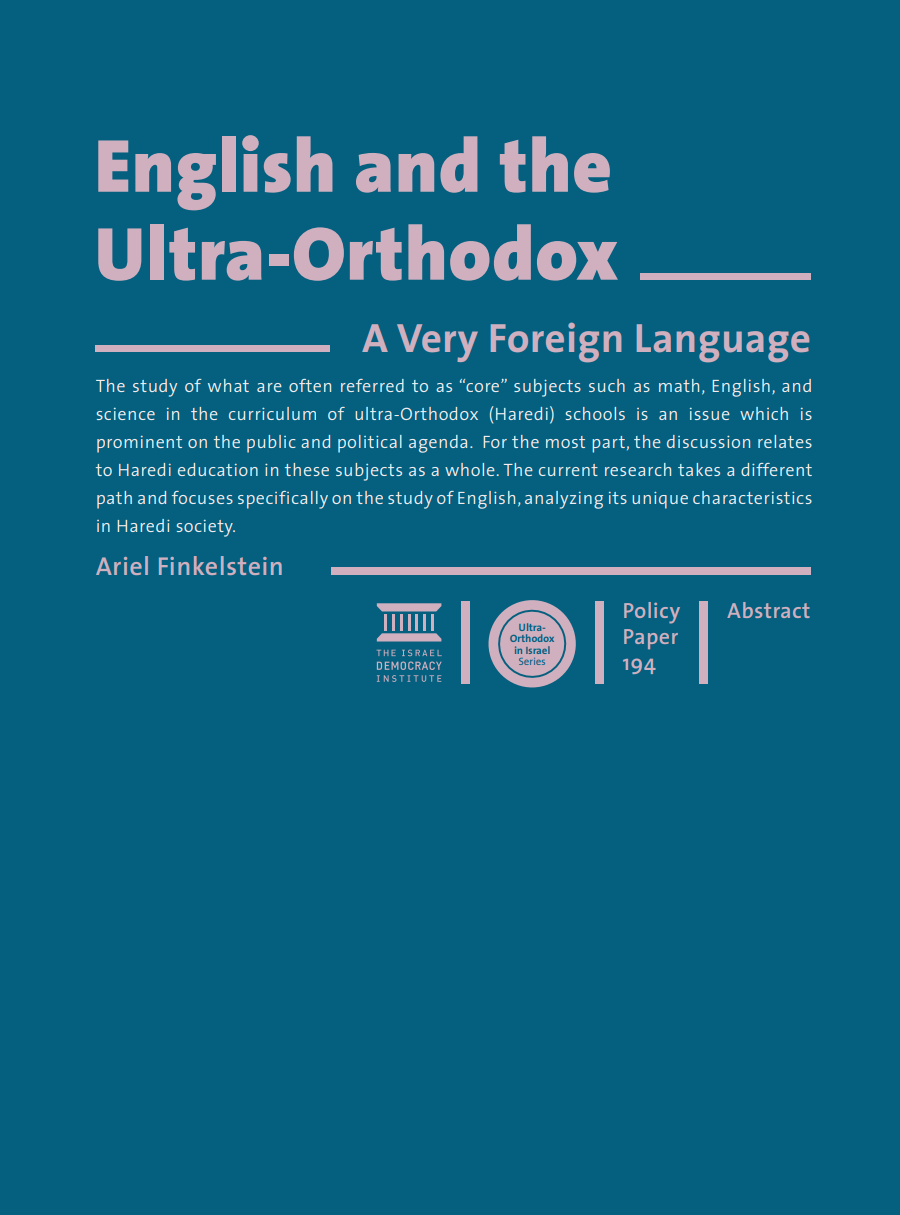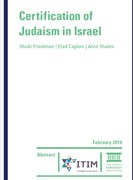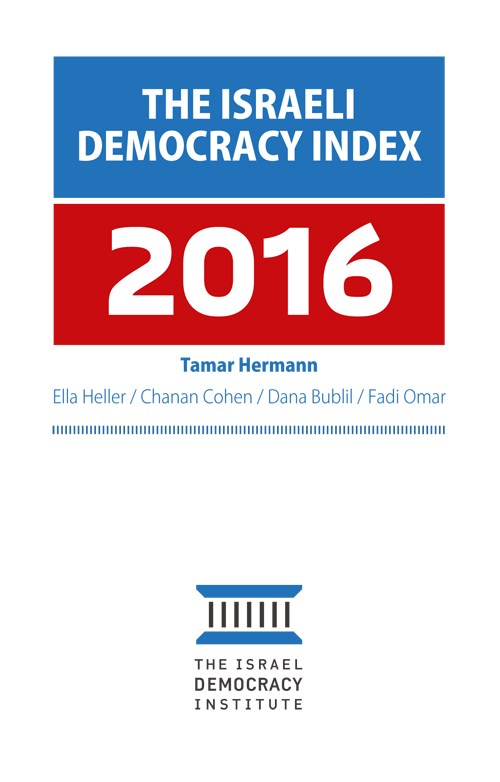

Publications Regarding Judaism and Democracy
Articles

Hard Lessons, Tough Choices: Israel’s Path Forward in a New Year
Written By: Yohanan Plesner

Who Goes to Uman?
Written By: Dr. Ariel Finkelstein
Quantity and Demographic Profile of Visitors to the Tomb of Rabbi Nachman of Breslov in Uman Among the Jewish Public in Israel.

Leaving the Country Among Yeshiva Students of Draft Age
Written By: Gabriel Gordon, Eliyahu Berkovits
One of the key sanctions under debate for Haredim who evade mandatory military conscription is a prohibition on leaving the country. By reviewing the extent and characteristics of Haredim traveling abroad, this analysis paints a picture of how such a sanction would impact Haredi society.

A Small but Insufficient Victory for Female Torah Scholars
Written By: Ayala Goldberg
A recent Supreme Court decision rules that the Chief Rabbinate must allow women to take the Halakhic exams it administers for the purpose of ordaining rabbis. While this does not mean they will be ordained as rabbis, this is good news for women in their struggle for the value of their Torah study to be recognized.

Haredi Integration and Tax Payments – The Burden and the Potential | Executive Summary
Written By: Gabriel Gordon
This research was released ahead of the Israel Democracy Institute's annual Eli Hurvitz Conference on Economy and Society, 2025.

The Proposed "Softened Rabbis Bill" Complicates the Budgeting Process for Religious Councils
Written By: Dr. Ariel Finkelstein
The recently proposed bill runs counter to accepted budgeting principles and undermines the autonomy of local governance.

The Two Coalitions Israel Needs Now
Written By: Yohanan Plesner
It is increasingly clear that Israel’s future depends on the forging of two coalitions. One is a multinational alliance determined to turn the Palestinian issue from a driver of conflict into an engine of peace. The other, is an internal Israeli coalition ready to pursue a series of bold social, economic, and political reforms.

“For these things, I weep; my eyes stream with tears, for there is no one to comfort me, to restore my soul.” (Book of Eicha)
Written By: Adv. Shlomit Ravitsky Tur-Paz
Israel’s challenges on Tisha B’Av 5784 are severe and complex. The costs we pay for living here are heavy and bloody. Yet the people living in Zion cling to the tradition of their forefathers and foremothers and to generations of pioneers who lived and died hoping to establish a model society here.

Tisha B’av: Lessons from Destruction and Hope
Written By: Marianne Matyash
9 B'av commemorates the destruction of the Second Temple in 70AD. As we mark the day, we face intense polarization within Israeli society and threats against our security from without. What lessons can we take from the story of the Temple's destruction that might serve us well today?

Workforce Participation of Haredi Yeshiva Students Under the Exemption Age
Written By: Gabriel Gordon
This study describes the employment trends among men registered in ultra-Orthodox yeshivas between the ages of 18-25. The findings are based on a reported work, or "legal work," so it is very likely that this is an underestimation of reality.

The Procedure for Electing Israel's Chief Rabbis
Written By: Dr. Ariel Finkelstein
Elections for the Chief Rabbinate Council and the two chief rabbis (“the Chief Rabbinate elections”) will likely be announced in the near term. The present document suggests a number of fundamental changes to its membership, with the goal of making it more representative.

A Sharp, Unequivocal, and Unanimous Supreme Court Decision to Draft Haredim
Written By: Prof. Suzie Navot
The Supreme Court ruling on June 25th addresses the question of whether the government is operating in accordance with the law. It determined that the state must act in accordance with the law and act to draft ultra-Orthodox. It also connects between the issue of exemptions and the criteria for eligibility for yeshiva budget funds.

Jewish Public Opinion Regarding the Chief Rabbinate and the Elections for the Chief Rabbis
Written By: Dr. Ariel Finkelstein, Ayala Goldberg
The aim of this review is to present the views of the Jewish public in Israel regarding the institution of the Chief Rabbinate, based on the findings of an opinion survey that was conducted in May 2024.

The New Rabbis Law Includes a Number of Inherent Flaws
Written By: Dr. Ariel Finkelstein
Dr. Ariel Finkelstein warns that the proposed new "Rabbis Law" would weaken the standing of local communities, could lead to cronyism, reduce women's representation and more.

Haredi Enlistment According to the Supreme Court Justices: "We intend to decide"
Written By: Prof. Suzie Navot
The discussion in the Supreme Court yesterday was not about whether a law exempting yeshiva students harms the principle of equality. It was about a much more basic question: is the State of Israel acting in accordance with the principle of the rule of law—that is, can yeshiva students be exempted from enlisting in the IDF, when there is no law allowing for this.

A Historic Supreme Court Hearing on Haredi Conscription and Yeshiva Funding
Written By: Adv. Shlomit Ravitsky Tur-Paz
Israel's Supreme Court convened to hear arguments on the issue of drafting ultra-Orthodox yeshiva students who no longer are exempt from military service, and the legality of providing funding for yeshivas that enroll them as long as no new law has been legislated on this issue.

The Missing Side of the Triangle: The Danger Religious Zionism Faces
Written By: Prof. Benjamin Porat
Religious Zionism (the sector, not the political party that appropriated the name) is one of the most influential population groups in Israel. In the following essay, I wish to draw attention to a worrying process afflicting religious Zionism, the roots of which can be traced back to its early days and has dramatically worsened in recent years.
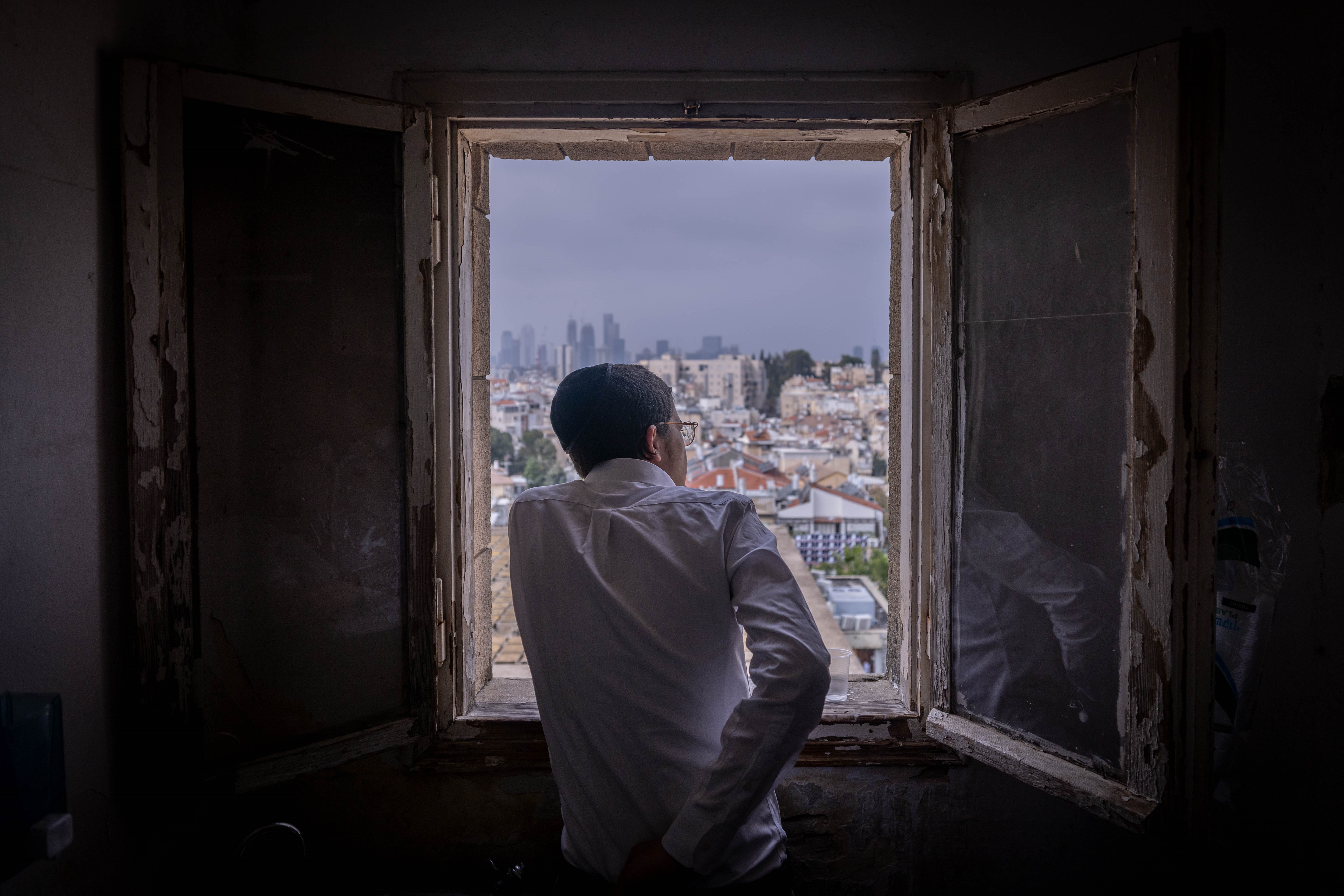
I, Too, Have Come to my Senses: It is Time to Rethink the Haredi Role in Israeli Society
Written By: Dr. Rivka Neriya Ben-Shahar
Dr. Rivka Neriya-Ben Shahar proposes a model that resembles the secular educational system of colleges and universities to identify the most gifted torah scholars, who would receive a generous stipend. Others must rethink their role as part of Israeli society.
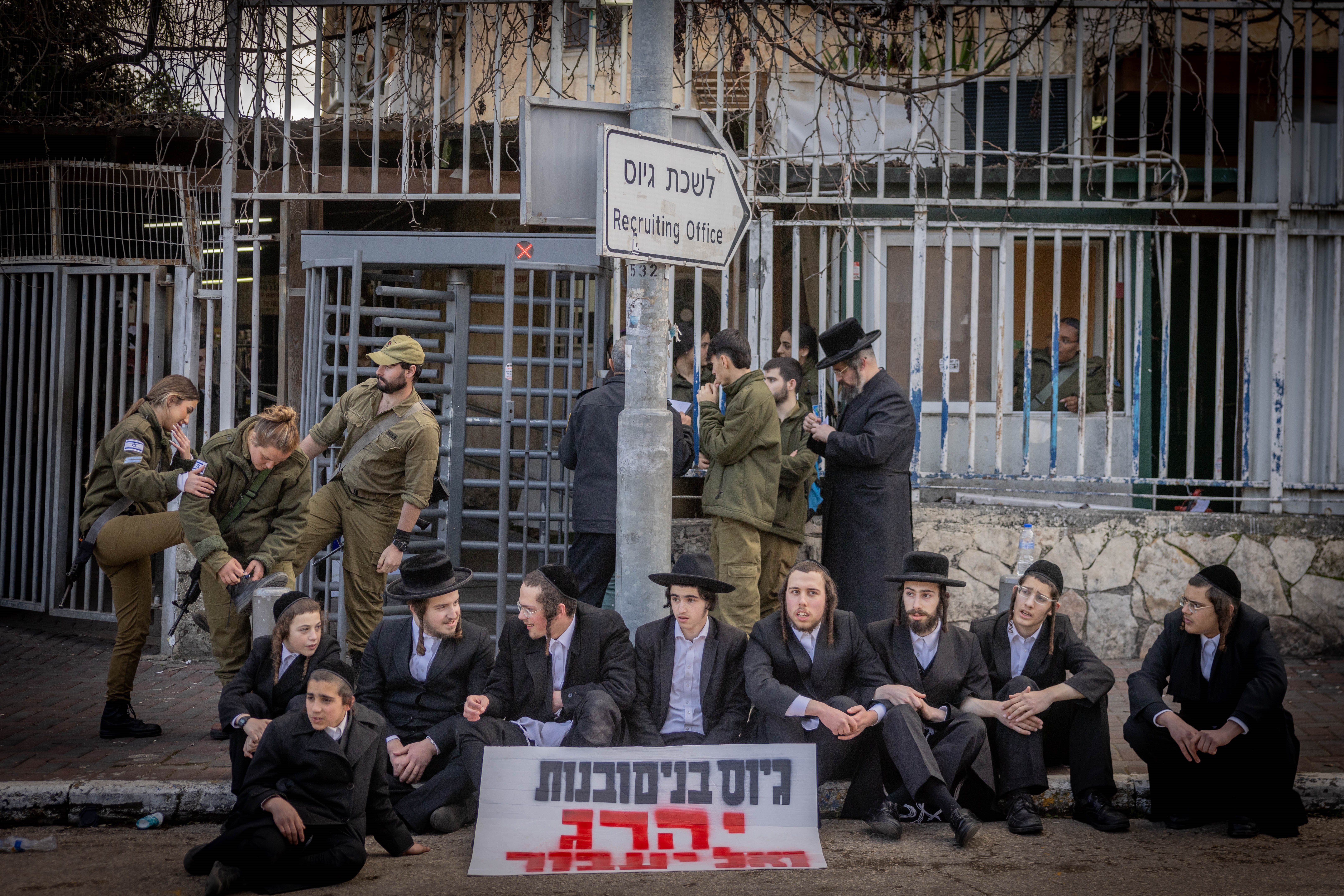
Explainer: The Supreme Court hearing on (non) recruitment of ultra-Orthodox men and budgeting of yeshivas
Written By: Adv. Shlomit Ravitsky Tur-Paz
What is the connection between the expiration of the conscription law and the budgets for yeshivas? What exactly was discussed in the Supreme Court and is the state in violation of the law? Bottom line, will the ultra-Orthodox be recruited, or not?

Follow the Money: On the War, Drafting the Yeshiva Students, and the State Budget
Written By: Prof. Benjamin Porat
The legal basis for deferring military service for Yeshiva students no longer exists, removing legal justification for the transference of funds to religious institutions with students under 26. Funding for Torah study institutions is the most substantial question that needs to be addressed at the current time, when Israeli society is rethinking its relations with the Haredi public.
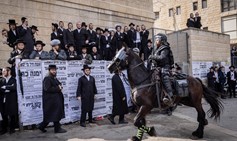
Bordering Beliefs: Israel’s Sociopolitical Divide Between Liberal and Ultra-Orthodox Values
Written By: Adv. Edna Harel Fisher
In Israel, social borders, political demands and the status of women continue to underscore tensions between liberal democratic values and the conservative, ultra-Orthodox Jewish communities.
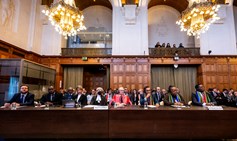
On South Africa's Misinterpretation of Amalek in Jewish Tradition
Written By: Adv. Shlomit Ravitsky Tur-Paz
Beyond the fact that the Torah does not make the call to commit genocide, the Tanach and its interpretations in fact obligate the Jewish people to abide by the laws of war. To a large extent, humanity's earliest laws of war can be found in the Bible.
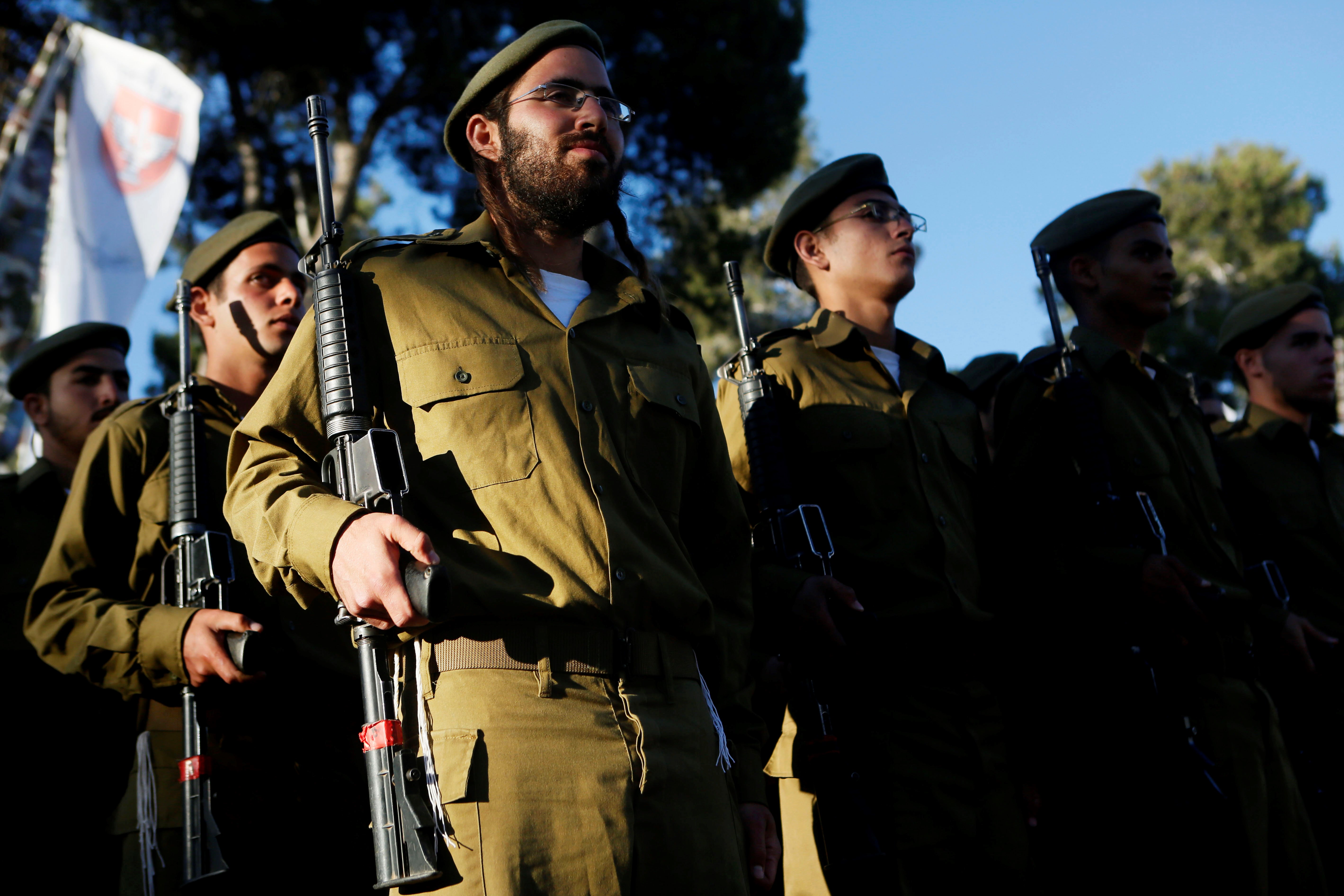
The Modern Haredi, As Envisioned by Rabbi David Leibel
Written By: Eliyahu Berkovits
Recently, a new answer to the dilemma of the 'modern Haredi' has been advanced enthusiastically by Rabbi David Leibel, one that maintains religiosity while increasing civic participation in the economy and in defense of Israel.
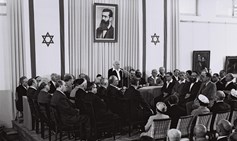
Can a unified Israel rise from the ashes of the Hamas war?
Written By: Yohanan Plesner
While we entered this war more divided than ever – and with large numbers even saying that they believed civil war to be a possibility – Israelis today are united in their determination to win.
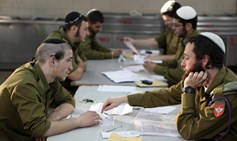
A New Social Contract with the IDF? On the Benefits of Waiting to Decide
Written By: Prof. Amichai Cohen, Dr. Gilad Malach
The need for expanded IDF service is clear—but the options for achieving this are rife with political contention and economic consequences. The time to rethink long-term security arrangements is after the fog of war lifts, under newly elected leaders with broad public legitimacy.

The Worthy Clause in the Nation-State Law
Written By: Dr. Amir Fuchs
The Nation-State Law includes a clause that declares the state's obligation to care for all Jewish people and all Israeli citizens whenever they are in jeopardy due to either their Jewish identity or Israeli citizenship. This does not impose a legal obligation, but it does reflect this special value which must not be lost during this war.
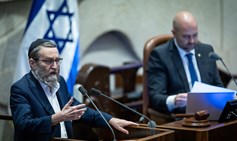
The Gap Between the Haredi Public and Politicians
Written By: Dr. Gilad Malach
The divide between Israel's Haredi (ultra-Orthodox) public and the Haredi establishment and political leadership has never been more striking. Many parts of Haredi society have joined the national war efforts while the Haredi political leadership have acted as if nothing has happened.

Haredi Enlistment for the Current War with Hamas is a Sign of a New Model of Rabbinic Leadership
Written By: Tehila Gado
The heads of the established traditional Haredi yeshivot have instructed their institutions to continue studies as normal during the current state of emergency, in accordance with the belief in the power of Torah study to protect the people of Israel. By contrast, the messages heard from various other rabbis reflect an understanding of changing needs and offer a blueprint for a new leadership vision.
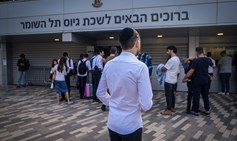
Haredi Enlistment In the IDF – A New Normal?
Written By: Eliyahu Berkovits
A growing number of Haredi men are volunteering for the IDF following the outbreak of the war against Hamas. This trend may signify that the “modern Haredi” phenomenon may be developing into a real movement.
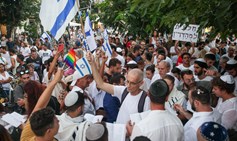
When solidarity was lost on the most important day of the Jewish year
Written By: Prof. Amichai Cohen
The hurt felt by the broad section of the Israeli public that is moderately traditional may have serious consequences for the struggle against the government’s judicial overhaul.
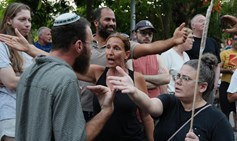
Tel Aviv's Yom Kippur Struggle Could Have Been Avoided
Written By: Adv. Shlomit Ravitsky Tur-Paz
The judicial overhaul is forcing Jewish Israelis to choose to identify, in an almost dichotomic manner with one of two camps. As they clash, the real loser is our unifying, complex, diverse, and open Jewish identity.
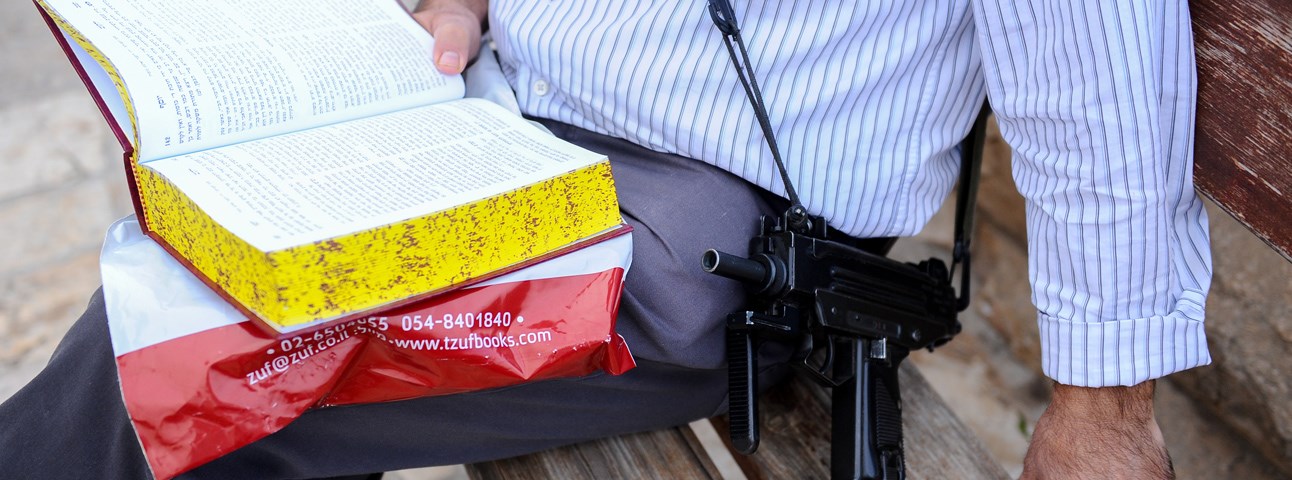
The Dissonance of Israel’s “Hardalim”
Written By: Yair Sheleg
How does Israel’s national-ultra-Orthodox population (“Hardalim”) combine ideals of the "new Jew" with their ultra-Orthodox religious world view?

Dear American Jewish Boys: Please Find Another Outlet for your Oedipal Rage. Signed, Israeli Jews
Written By: Dr. Shany Mor
Dr. Shany Mor pens an open letter in The Forward in response to actor Seth Rogen's comments on the Israel

What Is the Relation Between Anti-Zionism and Antisemitism?
Written By: Dr. Shany Mor
The terms antisemitism, anti-Zionism, and criticism can be described as three different phenomena - Dr. Shany Mor explains
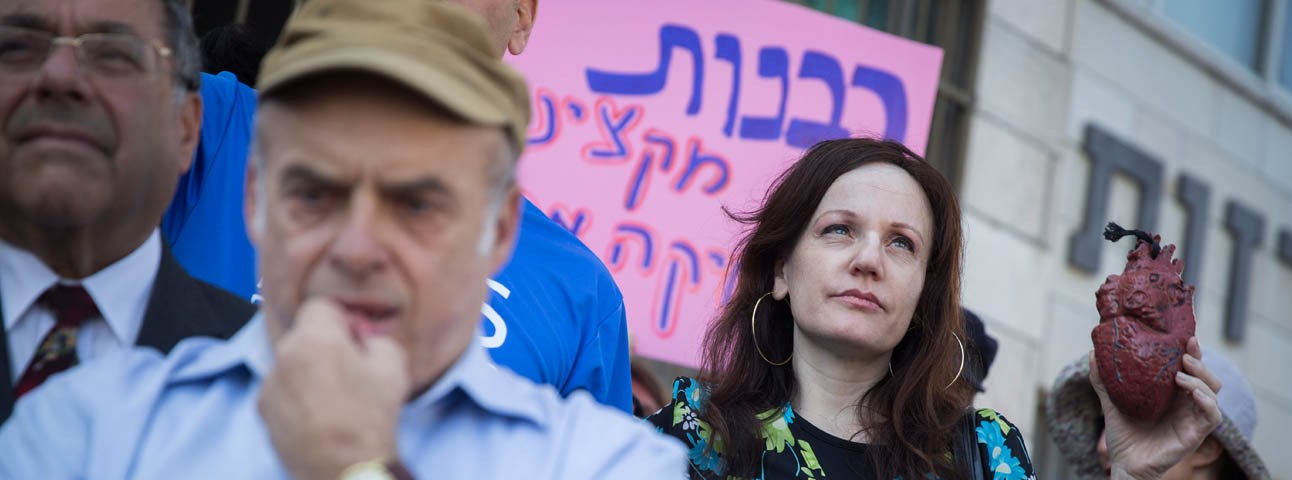
The Chief Rabbinate of Israel vs. the Jews
Written By: Dr. Shuki Friedman
Turning 1.2 million Israelis with FSU origins into a state-sanctioned punching bag is intolerable, and calls for radical and immediate change
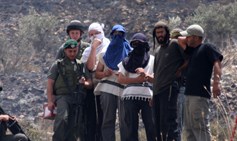
The Golem Turns on its Creator
Written By: Yair Sheleg
As a rule, it is not just their extremist ideology that has sent them to camp on the hilltops, but also the alternative they have chosen to replace the staid, bourgeois life they left behind.
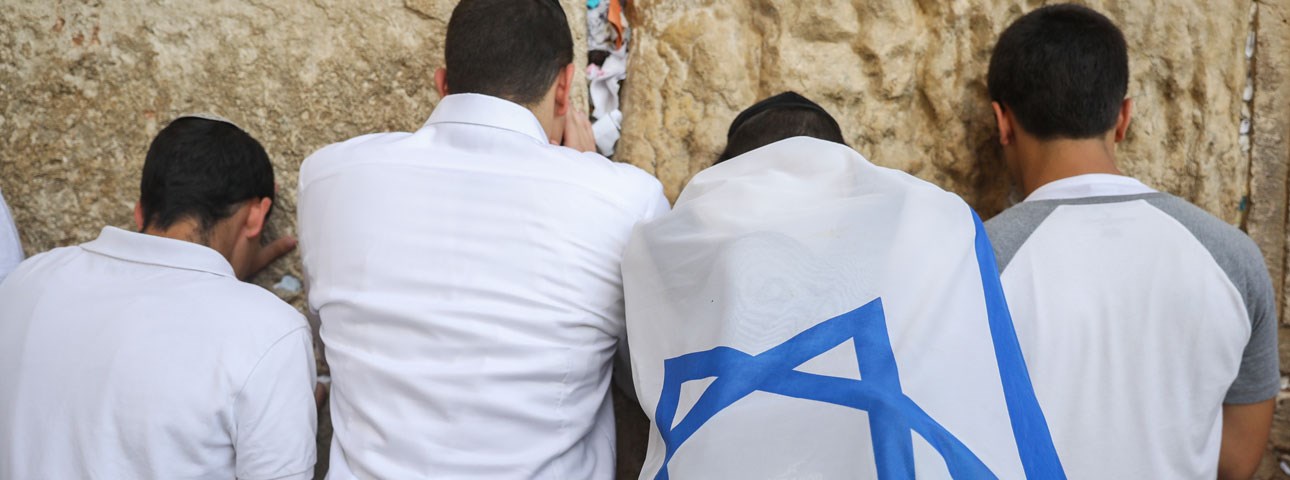
Jewish or Democratic? We Mustn’t Choose Between Them
Written By: Dr. Shuki Friedman
Recent elections have brought to fore the struggle between religion and state - the balance between the constitutional elecemtns and the place of religion. In this tug-of-war, a compromise can be the only victory.

Human Rights in an Age of Populism
Written By: Prof. Yuval Shany
The story of liberal democracies in the late 20th and early 21st centuries has been, to a large extent, the story of protecting personal liberties by independent democratic institutions.
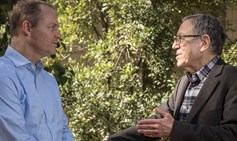
Is Israel's Democracy in Crisis?
Written By: Yohanan Plesner , Prof. Irwin Cotler, By: Steve Linde
IDI’s President Yohanan Plesner and Canadian jurist Irwin Cotler on the challenges facing Israeli democracy in the months ahead.
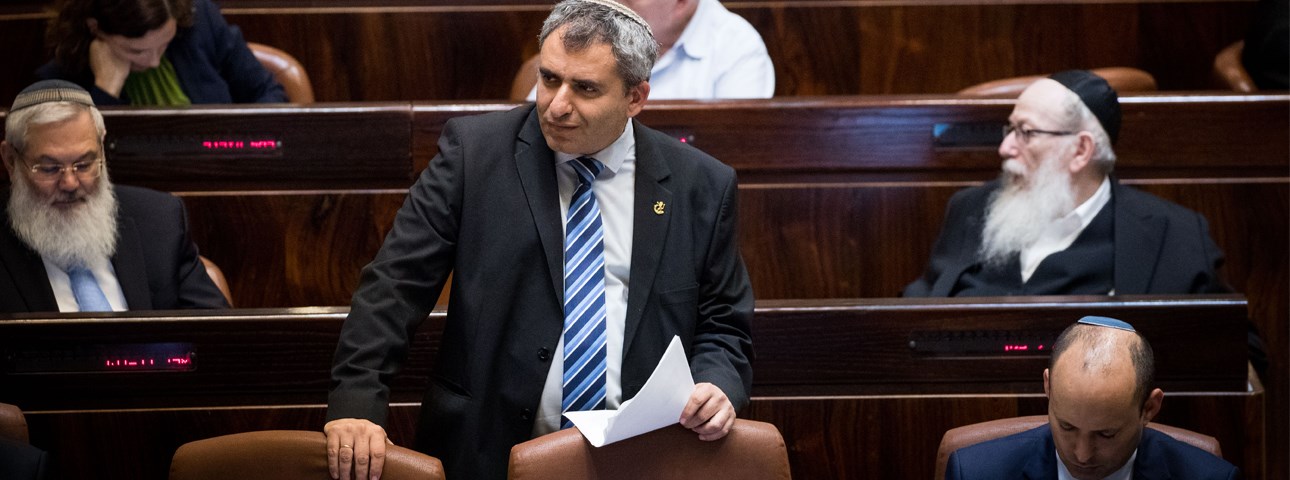
Too Much Religion in the Knesset?
Written By: Prof. Yedidia Z. Stern
The best estimate is that the religious and ultra-Orthodox will account for nearly a third (!) of the next Knesset. Should we be concerned that the Knesset is getting more religious?
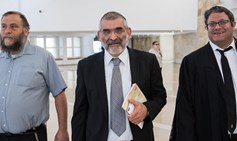
The Jewish Home Has Forgotten What It Means To Be Jewish
Written By: Dr. Shuki Friedman
The merger between the Jewish Home party and Otzma LeYisrael marks the end of an era. Since the founding of the State of Israel, the prominent Religious-Zionist parties have played a central role – yet they have now joined forces with the dangerous fringes on the extreme right

Whatever Happened to the Likud's Liberal Values?
Written By: Dr. Amir Fuchs
Dr. Amir Fuchs looks at how far removed today’s Likud is from the Likud of yesteryear, both in terms of personalities and ideologies
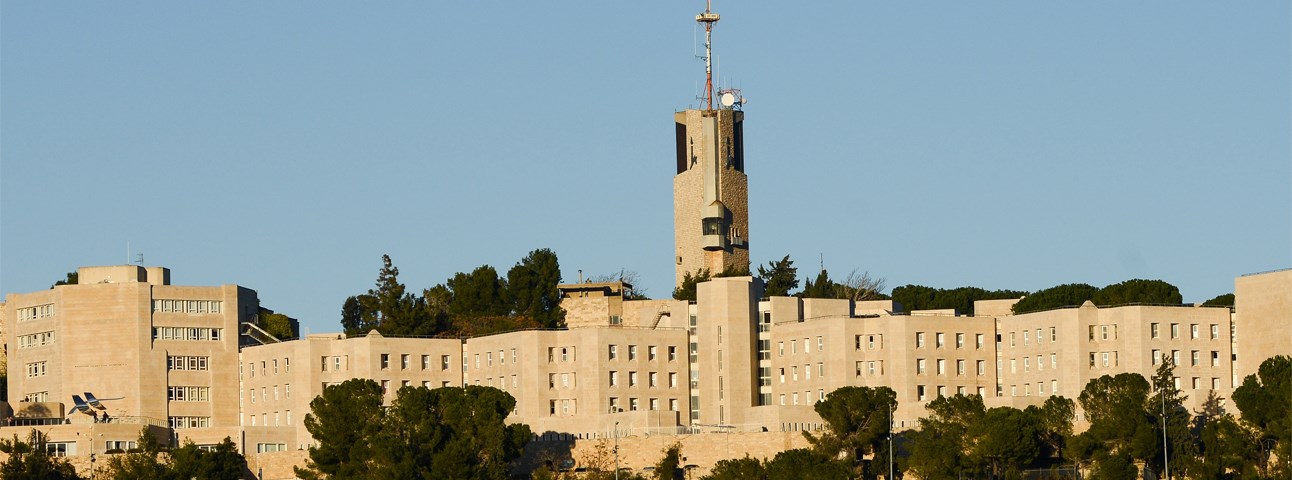
Observing the World from Our Own Perspective
Written By: Prof. Yedidia Z. Stern
Israeli society—its marketplace of ideas, its democratic institutions, the rule of law, the components of national identity—is caught in the turbulent vortex of a kulturkampf—a “culture war”.
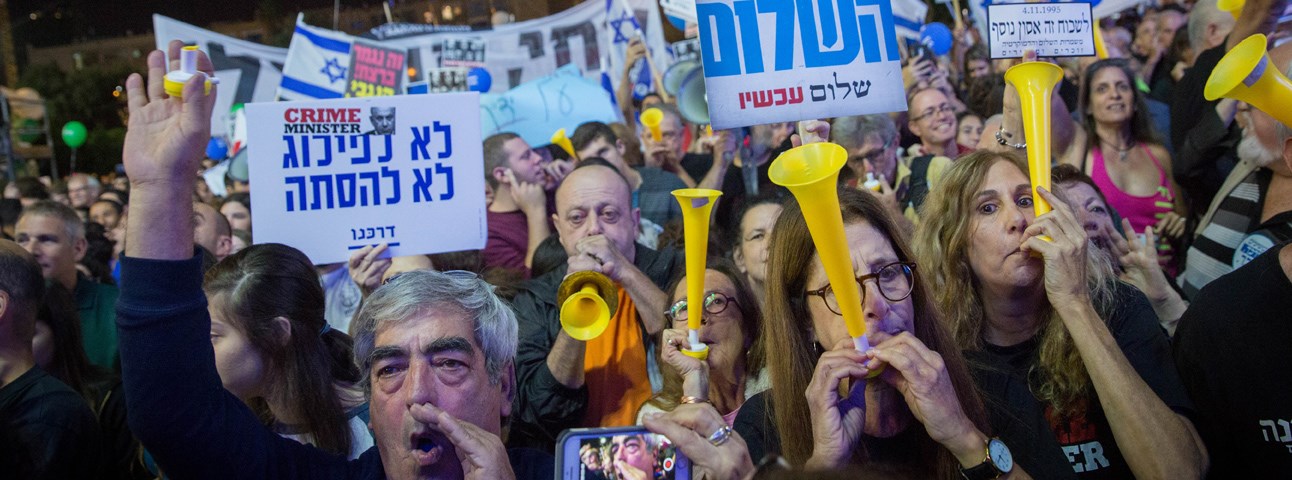
Beit Shemesh and Tel Aviv
Written By: Prof. Yedidia Z. Stern
How despicable is a mob that calls for non-partisanship but is unwilling to listen to a voice that speaks for a majority of Israelis today?
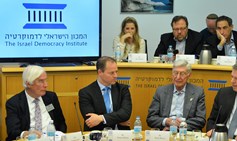
Strengthening Jewish Unity by Strengthening Israeli Democracy
Written By: Yohanan Plesner
As Israel enters its eighth decade, Yohanan Plesner, President of the Israel Democracy Institute, reflects on the delicate balance between the state’s two dominant characteristics – Jewish and democratic – which has never been more contested.
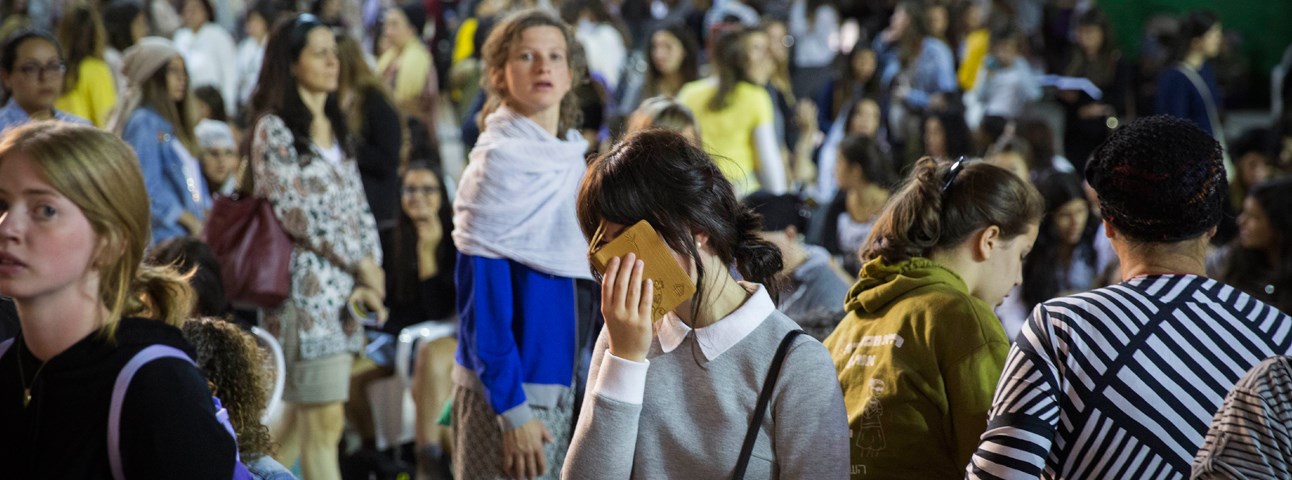
Are We Guilty? Are We Traitors?
Written By: Prof. Yedidia Z. Stern
Shared responsibility, engraved in Jewish tradition, is one of the secrets of the State of Israel's success and the use of the plural form in confession reflects this perception.
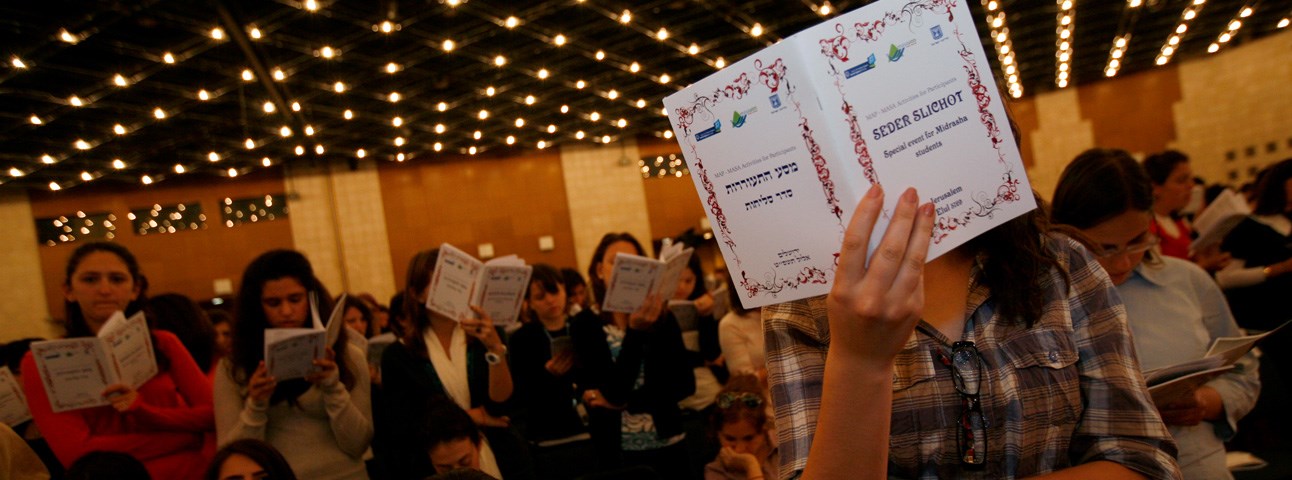
Israeli Collective Repentance
Written By: Prof. Yedidia Z. Stern
A collective Israeli repentance will enable us all to pray together for our common good, even if the content of our prayers is a matter of fierce disagreement.
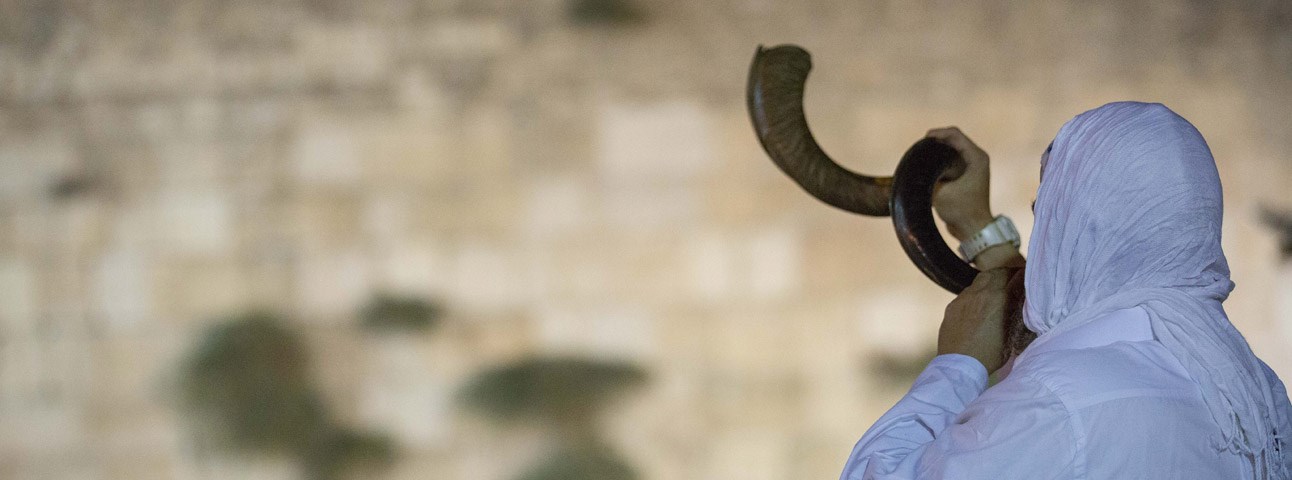
Rosh Hashanah: The Personal and the National
Written By: Prof. Yedidia Z. Stern
The Jewish calendar should guide our lives not only as individuals and a community, but also as a society and a state. If we want to preserve our identity as a distinct cultural and national group, we must make the effort to shape the cycle of time in our own way.
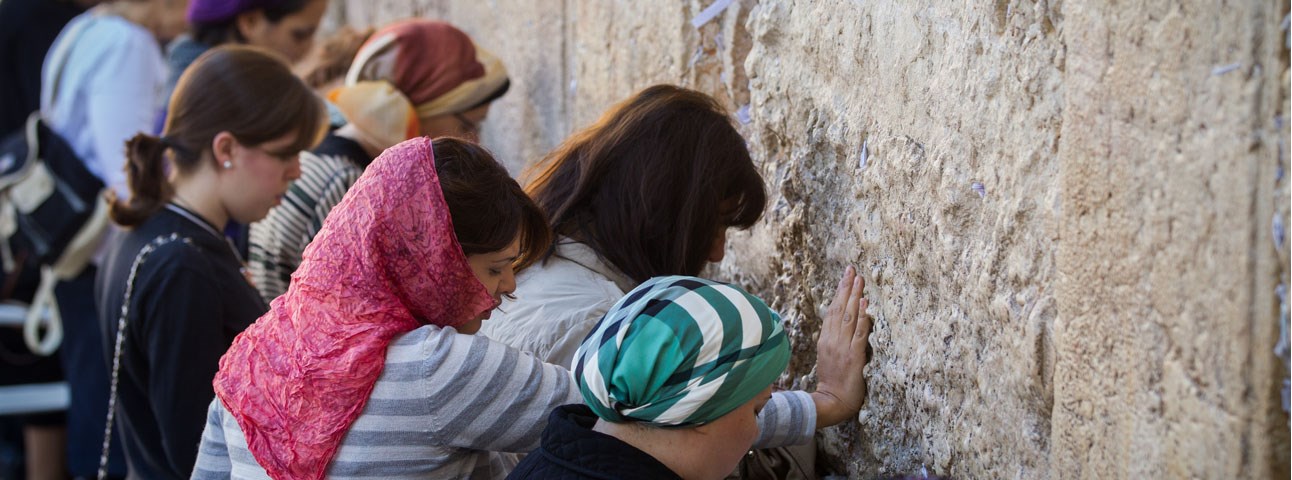
Israel Is Repeating The Mistakes That Led To The Temple’s Destruction
Written By: Prof. Yedidia Z. Stern
What message of Tisha B’Av is relevant for life in a sovereign state like Israel? Does the American recognition of Jerusalem as the capital of Israel make the day of mourning for “the city that is in mourning, laid waste, despised and desolate” an anachronism?
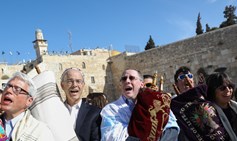
Calling on Our Leaders to Lead
Written By: Prof. Yedidia Z. Stern, Dr. Shuki Friedman
Leading public figures avoid dealing with issues that are of national importance when it entails confronting the ultra-Orthodox community.

Proposed Conversion Law
Written By: Prof. Yedidia Z. Stern
Prof. Yedidia Stern, Vice President of the Israel Democracy Institution said that the proposed conversion law is an important step. The state must take responsibility and resolve the issues that affect so many lives

Watch the Construction of the Democracy Pavilion in 60 Seconds
Ron Huldai, Mayor of Tel Aviv-Yafo Municipality: "The establishment of the Democracy Pavilion is an impressive demonstration of Israeli democracy. Only in a democratic society can freedom and tolerance co-exist. This is what allows the opposing sectors of Israeli society to live side by side." The Democracy Pavilion is located at the start of the Independence Trail in Tel Aviv and is open to the public free of charge.
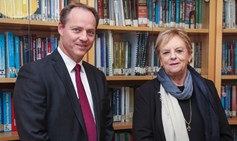
Fertile Ground for Growth: The Jewish State’s Balancing Act
Written By: Steve Linde
Beinisch and Plesner voice optimism about the future of Israel despite current tensions and threats to its democracy

Proposed Basic Law: Torah Study
Written By: Yohanan Plesner , Prof. Yedidia Z. Stern, Prof. Yuval Shany
Letter to Members of the Knesset on the proposed Basic Law: Torah Study - "This is an extremist proposal to enshrine the principle of inequality in our law books.Its adoption could undermine the IDF’s model of service and place Israel’s national security in jeopardy"
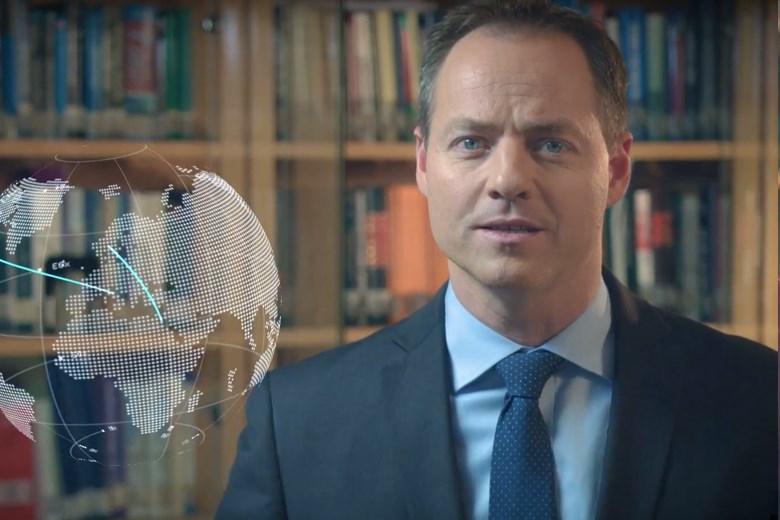
Ensuring a Vibrant Democracy
Written By: Yohanan Plesner

Privatizing Religion
Written By: Yair Ettinger
Yair Ettinger discerns between different streams of Religious-Zionist Jews in Israeli society, and analyzes how these schisms play out in the socio-political arena. This piece was originally published by Brookings.

IDI Scholars Call on Government to Implement Kotel Compromise
“The Kotel compromise presents a proper balance between the will and desire of Orthodox individuals - who are the majority of those praying at the Western Wall -- to continue praying in the main plaza as they always have, and the will and desire of other Jewish groups that want to pray in the vicinity of the Kotel according to their faith."

Rabbinical vs. Personal Converts to Judaism: What’s the Difference?
Written By: Steven M. Cohen
These two types of converts display different profiles and patterns of Jewish engagement, and both differ from the 5.1 million individuals who were born Jewish.
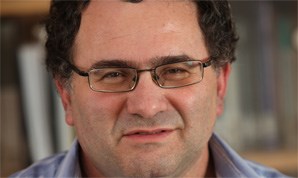
New Jew?
Written By: Yair Sheleg
Judaism is no longer intimately and inexorably linked to religious observance.
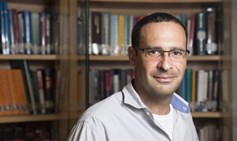
Rosh Hashanah Resolution
Written By: Dr. Shuki Friedman
The upcoming High Holidays are an opportunity to expand our perception beyond our selves and communities. This article was first published by the New York Jewish Week.
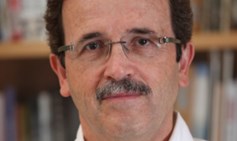
How to Save Israel’s Shabbat
Written By: Prof. Yedidia Z. Stern
It is time for all of us to rethink the desired character of the Israeli Shabbat. This article was originally published by Times of Israel.

Israel's Tragedy: One Country, Separate School Systems
Written By: Dr. Shuki Friedman
IDI's Shuki Friedman laments the existence of separate education systems for each sector of Israel's population, which reinforce, rather than bridge societal divides. This op-ed first appeared on Times of Israel.
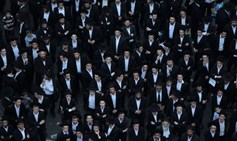
A New Approach To Dealing With Israel’s Ultra-Orthodox
Written By: Prof. Yedidia Z. Stern
Israel needs to abandon the vindictive approach of trying to reform ultra-Orthodox society through force and budget cuts, and rather start investing heavily in education and job creation in the ultra-Orthodox sector. This op-ed was first published in the New York Jewish Week.

A Holy War Over Israel's Character
Written By: Dr. Shuki Friedman
The inflammatory statements made about Reform Judaism at the recent First Zion and Jerusalem Conference are not merely old rhetoric, but rather a national ultra-Orthodox (Hardal) declaration of a holy war against the spread of pluralistic Judaism in Israel.
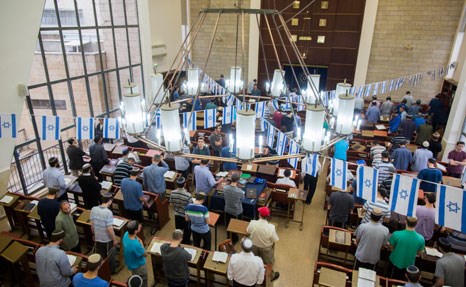
Israel's Battle for Peace Between Religion and State
Written By: Yair Sheleg
The relationship between religion and state in Israel is stormy. Lately, it seems the ultra-Orthodox have launched a new offensive on several fronts. This op-ed was originally published by JNS.org.
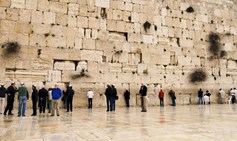
Time to Allow Everyone to Worship at the Foot of the Temple Mount as they Wish
Written By: Prof. Yedidia Z. Stern
No aspect of the current Western Wall plaza arrangement, in which the Orthodox maintain a monopoly, will change if other denominations are allowed to pray at the foot of the Temple Mount in a new plaza. This article was first published by The Jerusalem Post.

The ‘Religionization’ of Israel is Troubling, but the Fears About it are Hysterical
Written By: Dr. Shuki Friedman
Israel is a Jewish and democratic state. These two characteristics are critical to the country’s existence. This article originally appeared on JTA.org.

An Israeli Shabbat
Written By: Dr. Shuki Friedman
What does Shabbat and its observance look like in the State of Israel? Can every individual enjoy this day of rest in the way he/she chooses? Are there actually individuals who are forced to give up Shabbat as a result of a lack of choice or economic coercion? IDI scholar Dr. Shuki Friedman explains in this article which originally appeared on eJewish Philanthropy.

Trump, Clinton and the King of Moab
Written By: Prof. Yedidia Z. Stern
What do the two candidates for the American presidency — Hillary Clinton and Donald Trump — have in common? Almost nothing at all — except that their children are married to Jews. This op-ed by Yedidia Stern originally appeared in the Jewish Journal.

The Jewish Happiness Index
Written By: Prof. Yedidia Z. Stern
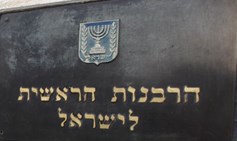
Israel's New Conversion Laws Give Power to the People
Written By: Dr. Shuki Friedman
The Supreme Court’s decision to recognize conversions performed by private Orthodox rabbinical courts in Israel is nothing less than a historic drama. The immediate significance is the loss of the Chief Rabbinate’s Orthodox monopoly over conversions, but it’s also a milestone in the privatization of religious services on the road to the Chief Rabbinate’s loss of relevance. Originally published by Haaretz.

Jewish, Democratic and Equal
Written By: Prof. Yedidia Z. Stern
There is a necessary condition that must be fulfilled for the existence of our nation-state to be justified: there must be an unconditional guarantee of civic equality for our national minorities. In this area, there is still much to be done.
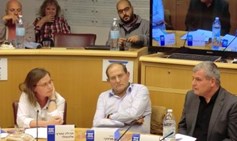
Turning Research into Action
IDI experts analyze challenges to Israel’s democratic values and institutions and work with decision-makers to implement concrete
proposals to strengthen Israeli democracy.
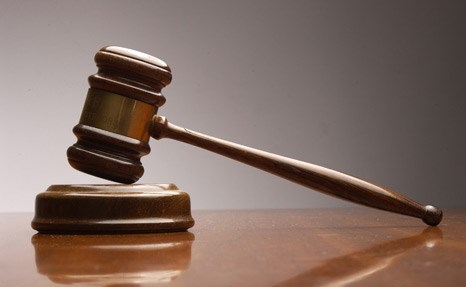
Judicial Appointment Highlights Dramatic Changes Among Israeli Haredim
Written By: Prof. Yedidia Z. Stern
Earlier this month, change snuck in through the back door of Israel's court system when Israel’s first ultra-Orthodox judge was appointed. This article was first published by the Jewish Press.

‘Jewish and Democratic’ Even in Tough Times
Written By: Dr. Shuki Friedman
Dr. Shuki Friedman reminds us that the values that are so deeply rooted in our Jewish worldview, are part and parcel with the democratic values of our state and its outlook on the obligation to preserve life and human dignity using the rule of law.
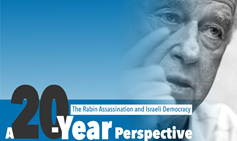
Rabin memorial into ‘Israeli Democracy Day’
Written By: Prof. Yedidia Z. Stern
In this memoir, Prof. Yedidia Stern recounts the murder of Prime Minister Yitzhak Rabin and calls on the Israeli public to turn that horrid day into an annual “Israeli Democracy Day." This article was first published in the Jerusalem Post.

The Elephant in the Room: Relations between Religion and State in Israel
Written By: Prof. Yedidia Z. Stern
Prof. Yedidia Stern urges Israel's leaders to stop tiptoeing around the core issues of religion and state in the Knesset election campaign, and to take a clear position on the matter.

Shemitat Kesafim: The Year of Escape from Debt
Written By: Prof. Benjamin Porat
Dr. Benny Porat discusses the precept of debt cancellation during the sabbatical year (Shemita) and proposes ways in which to update this practice to suit the economics of contemporary Israel and create a model society.
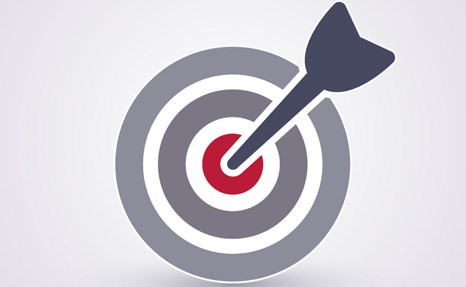
Democracy: The Key Election Issue
Written By: Prof. Mordechai Kremnitzer
In an op-ed in Maariv, IDI Vice President Prof. Mordechai Kremnitzer calls for an election campaign that focuses not only on foreign policy and Israel's social gap, but on the nature of Israeli identity and the value of Israeli democracy itself.
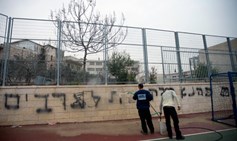
A Four-Step Plan to Combat Hatred between Jews and Arabs in Israel
Written By: Yair Sheleg
IDI Research Fellow Yair Sheleg outlines four steps that can allay fears, contribute to dialogue, combat hatred, and improve relations between Jews and Arabs in Israel

A Ready Alternative to the Nation State Law
Written By: Dr. Amir Fuchs
IDI researcher Dr. Amir Fuchs criticizes the proposed Basic Law that would establish Israel as the nation state of the Jewish people and recommends accepting Israel's Declaration of Independence as the preamble to Israel's future Constitution instead.

Is There a Place for God in the Israeli Army?
Written By: Prof. Yedidia Z. Stern
In an article in the <em>Jewish Week</em>, IDI Vice President Yedidia Stern discusses the question of whether it is appropriate for commanders to use religious rhetoric in motivating their soldiers, and stresses the need for the Israeli army to represent all.

When November 4th Meets the 12th of Heshvan
Written By: Yitzhak Ben David
Rabbi Yitzhak Ben David shares thoughts on the alignment of the Memorial Day for Yitzhak Rabin on the Gregorian and Hebrew calendars, which challenges us to find a renewed reconciliation between Israeli democracy and Jewish civilization.
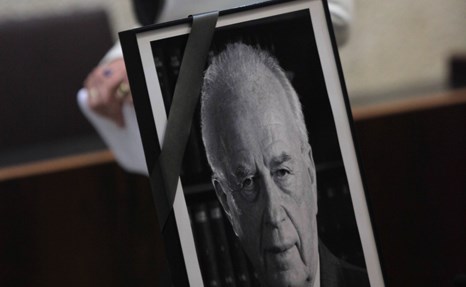
Joining Together to Remember Yitzhak Rabin
Written By: Benjamin (Benny) Lau
On the 19th anniversary of the Rabin assassination, Rabbi Dr. Benjamin (Benny) Lau, head of IDI's Human Rights and Judaism in Action project, looks at the youth of Israel and shares a vision of hope.

Israeli Democracy Day: Yitzhak Rabin's Legacy for the Future
Written By: Prof. Yedidia Z. Stern
On the 19th anniversary of the assassination of Yitzhak Rabin, Prof. Yedidia Stern asserts that if the annual memorial day for the late prime minister were to be observed as Israeli Democracy Day, Rabin's legacy for the future would be even greater.
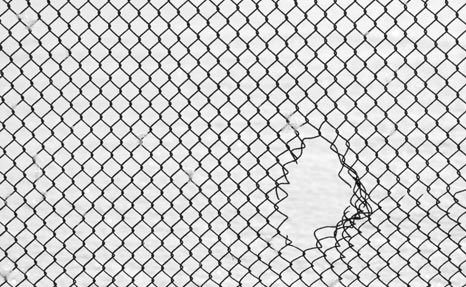
Overriding the Supreme Court: A Breach in the Wall of Democracy
Written By: Dr. Amir Fuchs
Dr. Amir Fuchs discusses the proposal to add an override clause to Israel's Basic Law: Human Dignity and Freedom that would enable the Knesset to bypass the High Court and deal a a severe blow to the main safeguard of human rights and minorities in Israel.

The IDF’s Fighting Ethos in the Wake of Operation Protective Edge
Written By: Yohanan Plesner
IDI President Yohanan Plesner stresses the need to ensure that the Israel Defense Forces remains at the heart of the Zionist consensus so as to enable it to continue to be the army of all citizens of Israel.
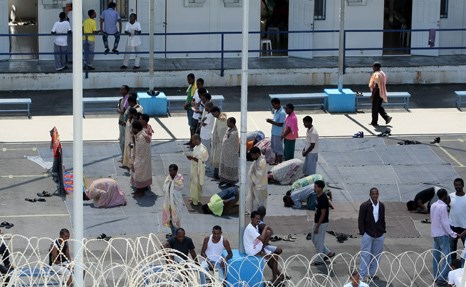
Second Strike and You Are (Finally) Out? The Quashing of the Prevention of Infiltration Law (Amendment No. 4)
Written By: Prof. Reuven (Ruvi) Ziegler
IDI Researcher Dr. Reuven (Ruvi) Ziegler presents a brief overview of the Israeli High Court of Justice's decision to strike down Amendment No. 4 of the Prevention of Infiltration Law, and explores several themes that may be of comparative constitutional interest.
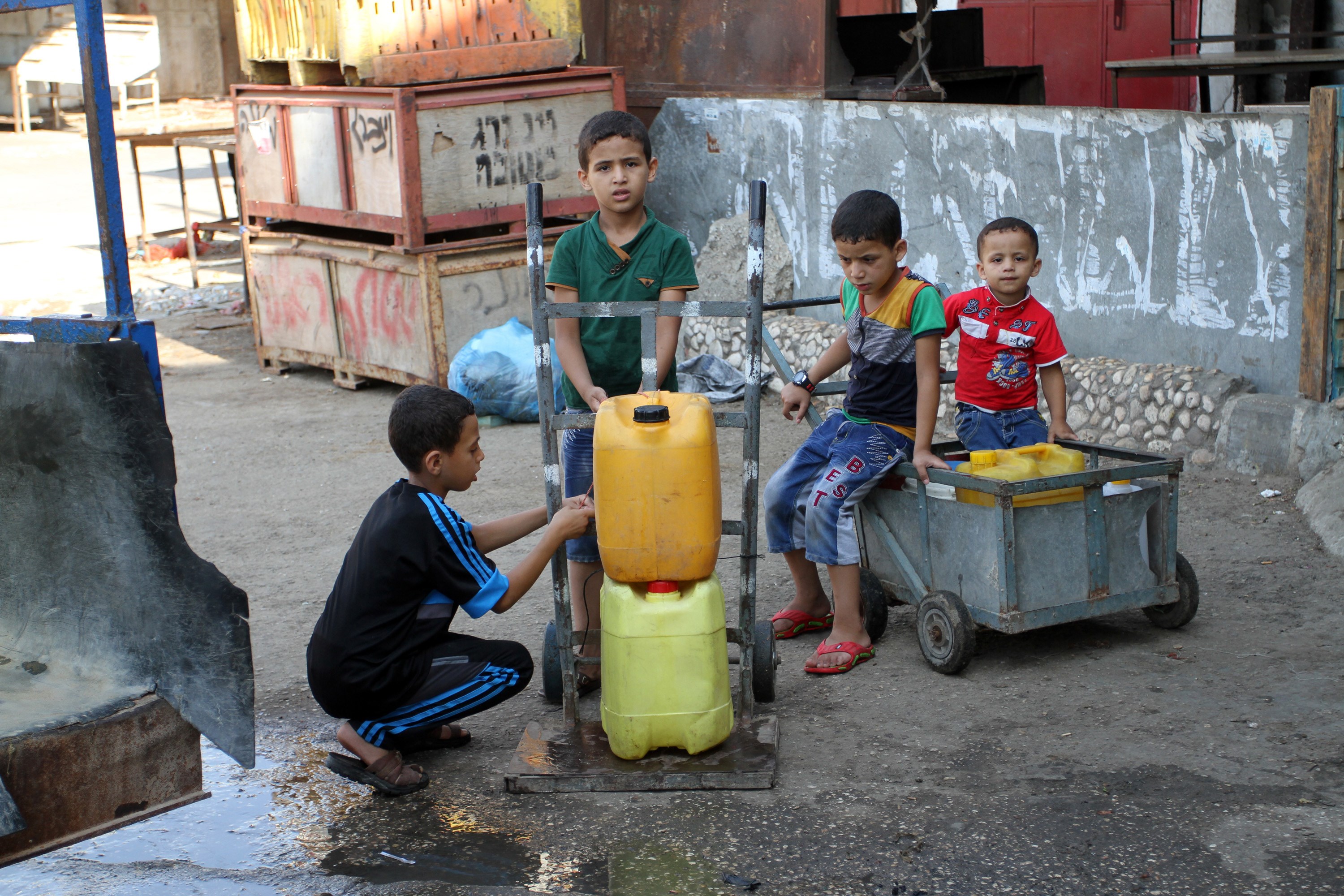
The Admissions Committees Ruling: A Lack of Ripeness or Refusal to Decide?
Written By: Dr. Amir Fuchs
Dr. Amir Fuchs discusses the Israeli High Court of Justice's decision to uphold the "Admissions Committees Law," which allows small communities to reject applicants due to a lack of social suitability.

Shmita: Rest, Share, Release
Written By: Prof. Yedidia Z. Stern
An exploration of the existential, social, and economic dimensions of the Shmita year, that calls for bringing together social, moral, cultural, religious and national forces to implement the idea of Shmita in non-agricultural and national contexts in Israel.

The IDF: Army of the People or Army of God?
Written By: Prof. Mordechai Kremnitzer
IDI Vice President Prof. Mordechai Kremnitzer addresses the question of the appropriateness of the letter that Givati Brigade commander Col.Ofer Winter sent to his subordinate officers as Israel prepared for the ground incursion in Gaza in the summer of 2014.
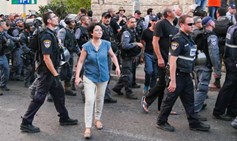
On the Punishment of MK Hanin Zoabi by the Knesset Ethics Committee
Written By: Dr. Assaf Shapira
IDI researcher Assaf Shapira provides background information on the decision of the Knesset Ethics Committee to suspend MK Hanin Zoabi for statements she made about the kidnapping and murder of three Jewish teenagers and about Operation Protective Edge.
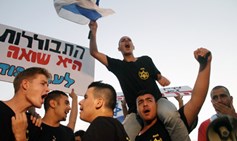
On Intermarriage, Judaism, and Democracy in Israel
Written By: Benjamin (Benny) Lau
Rabbi Dr. Benjamin Lau shares thoughts on the tension between Judaism and democracy, in response to the public protests against the marriage of a Jewish woman who converted to Islam and an Israeli Arab.
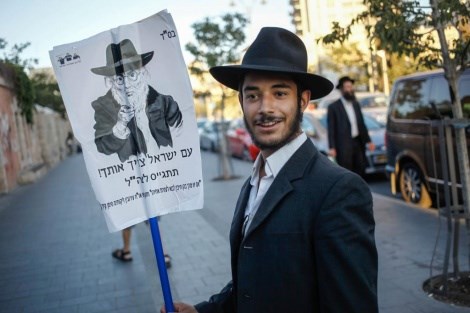
Ultra-Orthodox Integration: It Takes Two to Tango
Written By: Haim Zicherman
In an op-ed in Ynet News, IDI researcher Dr. Haim Zicherman discusses the steps that Israeli society must take in order to enable ultra-Orthodox men to integrate into the Israeli army and workforce.
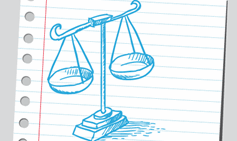
Basic Law: Nation State? Only a Constitution Can Guarantee Israel's National Character
Written By: Dr. Amir Fuchs, Prof. Mordechai Kremnitzer
Prof. Mordechai Kremnitzer and Attorney Amir Fuchs assert that the only way to guarantee Israel's existence as a Jewish and democratic state is not through a Basic Law that defining Israel as the nation state of the Jewish people but through a Constitution.
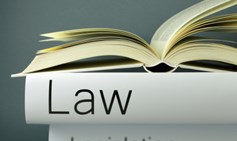
IDI Experts Submit Legal Opinion on Basic Law: Israel as the Nation State of the Jewish People
Written By: Prof. Mordechai Kremnitzer, Dr. Amir Fuchs
A legal opinion opposing the proposed Basic Law: Israel as the Nation State of the Jewish People, which was submitted by IDI Vice President Prof. Mordechai Kremnitzer and Attorney Amir Fuchs to the Ministerial Committee on Legislation on June 4, 2014.

Shavuot in Israel: A Celebration of Torah or First Fruits?
Written By: Hizky Shoham
Dr. Hizky Shoham explores the multiple identities of the holiday of Shavuot, which began as an agricultural festival, was transformed into the "holiday of the giving of the Torah," and is most often commemorated as a celebration of Torah in today's Israel—by secular and observant Jews alike.
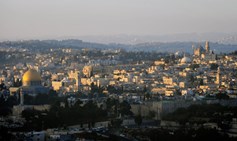
A Royal Sanctuary: Three Scenes for Jerusalem Day
Rabbi Dr. Benjamin (Benny) Lau presents three snapshots from different times and places, reflecting on a city that combines ancient and modern, sacred and secular, eternal truths and ordinary life.

My Jerusalem: Thoughts for Jerusalem Day
Written By: Prof. Mordechai Kremnitzer
IDI Vice President Prof. Mordechai Kremnitzer shares thoughts on Jerusalem, which symbolizes what is most beautiful and exalted in Jewish culture: the commitment to law and morality, to justice and mercy.
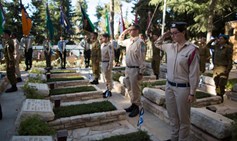
A Jewish State Warrants Our Sacrifice
Written By: Prof. Yedidia Z. Stern
IDI Vice President Prof. Yedidia Stern reflects on the privilege of sacrifice and the necessity to maintain a Jewish Israel in order to justify that sacrifice, in an article written for Remembrance Day for the Fallen of Israel's Wars and Victims of Terrorism.

Basic Law: Israel as the Nation State of the Jewish People – A Danger to the Zionist Enterprise
Written By: Dr. Amir Fuchs, Prof. Mordechai Kremnitzer
In an article in the Hebrew weekly <em>Makor Rishon</em>, Prof. Mordechai Kremnitzer and Attorney Amir Fuchs argue against the current initiative to pass Basic Law: Israel as the Nation State of the Jewish People, which they see as divisive and problematic.
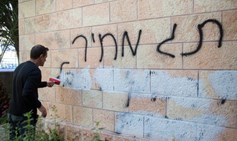
Price Tag Attacks: Racist Crimes
Written By: Dr. Amir Fuchs
In an article in <em>Haaretz</em>, Attorney Amir Fuchs stresses the need to wage a genuine war against racism, in order to preserve the values of Zionism and safeguard the Jewish and democratic state.

Israeli Public Opinion on Reducing Funding to Organizations that Mark Independence Day as the "Nakba"
Written By: Mr. Chanan Cohen
What do Jews in Israel think about the law mandating the reduction of government funds to institutions that mark Israel Independence Day as a day of mourning for the Palestinian "Nakba"? Find out in this mini-survey conducted by IDI's Guttman Center.

Celebrating Independence: The Vision of Professor Reuven Feuerstein
Written By: Benjamin (Benny) Lau
As Israel prepares to celebrate its independence, Rabbi Dr. Benjamin Lau and Ms. Shira Ruderman remind us of the need to bring people with disabilities into the circle of those who celebrate independence, drawing on the legacy of the late Prof. Reuven Feuerstein in this call for integration.

Public Opinion: Is Israel Independence Day a Holiday?
Written By: Mr. Chanan Cohen
Do Jewish and Arab citizens of Israel see Yom Ha'atzmaut as a holiday? Do perceptions among Jews vary depending upon level of religiosity or position on the right-left political spectrum? Find out in this Mini-Survey from IDI's Guttman Center.
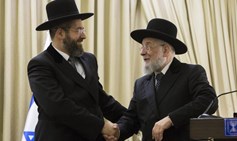
Reinventing the Chief Rabbinate
Written By: Ayelet Libson
In an article in <em>The Jewish Week</em>, Ms. Ayelet Libson of IDI's Human Rights and Judaism project questions the role of the Israeli Chief Rabbinate and offers her view of what it could be.
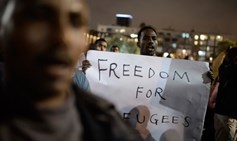
The Prevention of Infiltration Act in the Supreme Court: Round Two
Written By: Prof. Reuven (Ruvi) Ziegler
IDI researcher Dr. Reuven (Ruvi) Ziegler explains why he believes the Supreme Court should overturn Amendment No. 4 of the Prevention of Infiltration Act just as it invalidated its predecessor.
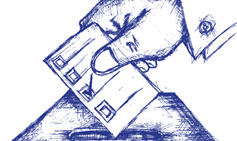
Basic Law: Referendum—Changing the Rules of the Game of Israeli Democracy
Written By: Dr. Dana Blander
Dr. Dana Blander draws on the findings of Israeli public opinion polls and explores some of the ramifications of the new Basic Law: Referendum, a law that establishes a system in which every citizen is entitled to participate in historic decisions on withdrawal from territory.

On Leadership and Responsibility: The Lessons of the Purim Story
Written By: Shira Ruderman, Benjamin (Benny) Lau
Rabbi Dr. Benny Lau and Shira Ruderman, Israel Director of the Ruderman Family Foundation, share thoughts on the Purim story, leadership, responsibility, and repair of the world.
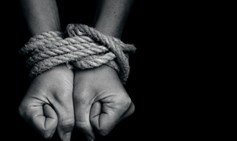
Who is Responsible for Finding a Solution to the Plight of Mesoravot Get?
Written By: Prof. Shahar Lifshitz
Prof. Shahar Lifshitz outlines what halakhic authorities and the Knesset can do in order to resolve the issue of get refusal, as discussed at the Second Agunah Summit.

The Electoral Threshold: Why the Rush?
Written By: Prof. Ofer Kenig
In an op-ed in the Jerusalem Post, Dr. Ofer Kenig warns that while there is nothing wrong with a moderate increase in Israel's electoral threshold, increasing it from 2% to 3.25% in a single step is problematic.

The IDF and the Ultra-Orthodox
Written By: Haim Zicherman
As the Knesset prepares to vote on the "Draft Law" designed to regulate the service of ultra-Orthodox men in the Israel Defense Forces, Dr. Haim Zicherman surveys the current situation within Israel's Haredi community.

Is "Israeli" a Nationality?
Written By: Jay Ruderman, Prof. Yedidia Z. Stern
Should the State of Israel recognize "Israeli" as a nationality? IDI Vice President Prof. Yedidia Stern and Jay Ruderman assert that it is imperative for the State of Israel to continue distinguishing between citizenship and nationality.
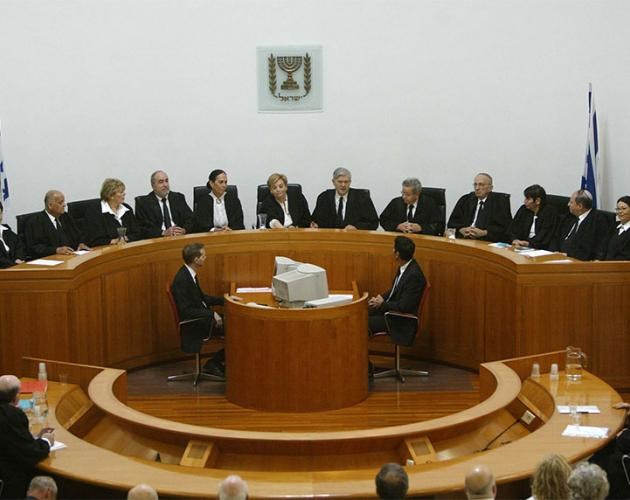
The Haredi Draft: Is the Shaked Committee's Bill Destined to be Overturned?
Written By: Prof. Yedidia Z. Stern
As the Shaked Committee begins to vote on its proposal for the Haredi draft, Prof. Yedidia Z. Stern warns that the proposal's recommendation to exempt Haredi men of draft age during a three-year "adjustment period" is both inequitable and ineffective.

Non-Jews in a Jewish State: Searching for a New Paradigm
Written By: Kalman Neuman
In an article in The Jewish Week, Rabbi Dr. Kalman Neuman of IDI's Religion and State project examines some of the thorny questions of Jewish law when it comes to non-Jews in a Jewish state.

Human Rights under Attack
Written By: Dr. Amir Fuchs
IDI Researcher Attorney Amir Fuchs discusses two indirect threats to human rights in Israel: attacks on the Israeli Supreme Court and attacks against Israeli human rights organizations.

Marriage Equality for the Hearing Impaired
Written By: Benjamin (Benny) Lau
Rabbi Dr. Benjamin (Benny) Lau celebrates a planned change in the Chief Rabbinate's policy regarding the treatment of hearing impaired individuals when it comes to marriage in Israel.

International Disabilities Day 2013: Human Rights and Judaism in Action
Written By: Benjamin (Benny) Lau
In honor of International Day for Persons with Disabilities, Rabbi Dr. Benjamin (Benny) Lau updates us on IDI's efforts on behalf of people with disabilities and reveals that people with guide dogs are now allowed to access the Western Wall.

The Referendum Law as a Metaphor
Written By: Dr. Arye Carmon
In an op-ed originally published in Haaretz, IDI Former President and Founder Dr. Arye Carmon explains his reservations about the "Referendum Bill" and warns that the concept of referendum is antithetical to the principles of democracy.
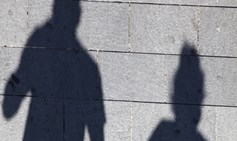
The Fate of a Mamzer
Written By: Gitit Paz
In an article in The Jewish Week, Gitit Paz, a young scholar in IDI's Human Rights and Judaism project, discusses the status of mamzer in Jewish law and in contemporary Israel.
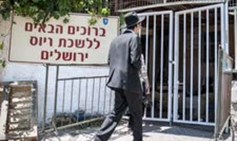
The Haredi Draft: Equality Now?!
Written By: Prof. Yedidia Z. Stern
On November 21 2013, Prof. Yedidia Z. Stern appeared before the Shaked Committee and argued that criminal sanctions are not recommended for reaching conscription goals. In an op-ed in Makor Rishon, he explains why.
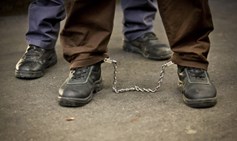
Using Administrative Detention to Combat Organized Crime
Written By: Aviad Ben Yehuda
Aviad Ben Yehuda discusses the problematic nature of the proposal to extend the use of administrative detention in Israel from the war on terror to the war on organized crime.

The Binding of the Boy from Damascus
Written By: Prof. Yedidia Z. Stern
How should Jews in Israel feel about the mass slaughter of Arabs by Arabs just a few miles away? IDI Vice President Prof. Yedidia Z. Stern shares thoughts in this article, which was originally published in The Jewish Week.

On the Need for Civil Unions in Israel
Written By: Benjamin (Benny) Lau
Rabbi Dr. Benjamin (Benny) Lau expresses support for the proposed civil union bill, which would allow couples who do not want to marry in a religious service to form a legally recognized union and be eligible for the benefits and responsibilities associated with marriage.
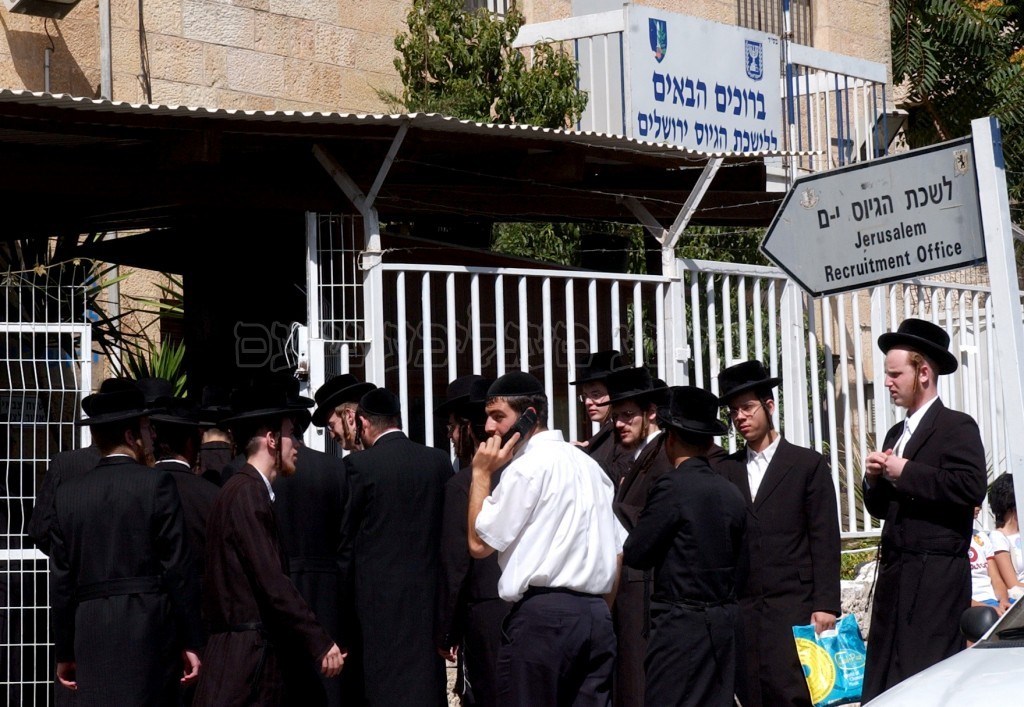
Sir Isaac Newton and the New Haredim
Written By: Prof. Yedidia Z. Stern
Prof. Yedidia Stern shares thoughts on the connection between failure of the ultra-Orthodox "Tov" party in the local elections, the Haredi draft bill being debated by the Shaked Committee, and Newton's laws of motion.

The Contributors to the State Bill: Contributing to the Jewish-Arab Divide
Written By: Dr. Talya Steiner, Prof. Mordechai Kremnitzer
Prof. Mordechai Kremnitzer and Att. Talya Steiner warn that the veteran's benefit bill, which is intended to extend benefits to those who have contributed to the State, discriminates against Israel's Arab citizens, who are exempt from military service in Israel.

"Who Made Me a Woman": Women in Ultra-Orthodox Society
Written By: Lee Cahaner
A series of Hebrew videos on the historical processes behind the development of the role of ultra-Orthodox women in the family and society, which were developed as part of IDI's research projects on the Nation State and on the Integration of Haredim in Israeli Society.

Blind to the Rights of the Disabled
Written By: Benjamin (Benny) Lau
In an article in The Jewish Week, Rabbi Dr. Benjamin (Benny) Lau calls on religious authorities who hold human rights dear to find a way to allow people with disabilities to have access to the Western Wall plaza.

What Can We Learn about Israeli Policy Making from the Supreme Court's Ruling on the Anti-Infiltration Law?
Written By: Dr. Talya Steiner
Attorney Talya Steiner warns that a Supreme Court's judgment that struck down an amendment of Israel's anti-infiltration law as unconstitutional points to significant flaws in Israel's process of policy-making.
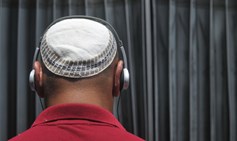
No to the Separation of Religion and State in Israel
Written By: Yair Sheleg
Should the American model of separation of church and state be applied to Israel? In an article in <em>The Jewish Week</em>, IDI's Yair Sheleg argues that Israel needs a unique model.

Life Under Two Suns: When Human Rights and Jewish Values Collide
Written By: Prof. Yedidia Z. Stern, Jay Ruderman
The first in a series of articles by researchers from IDI's Judaism and democracy projects and Human Rights and Judaism project on the complementary but tense relations between Judaism and democratic values.
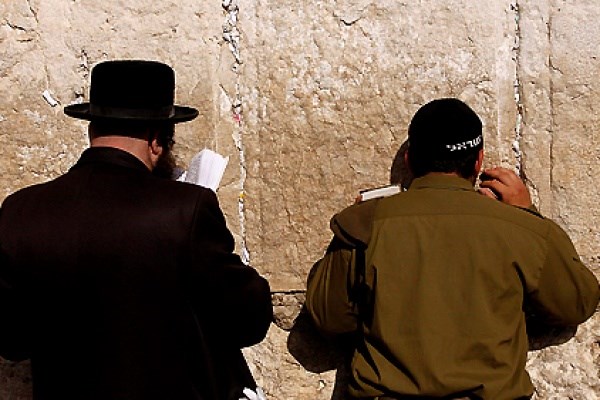
How Can We Draft the Ultra-Orthodox with Consent?
Written By: Prof. Yedidia Z. Stern
Is it possible to draft the ultra-Orthodox and integrate them into Israel's society and economy in a mutually-agreeable manner that encourages solidarity between the different sectors of the Jewish people? Prof. Yedidia Z. Stern shares thoughts on wars between brothers and brothers-in-arms.
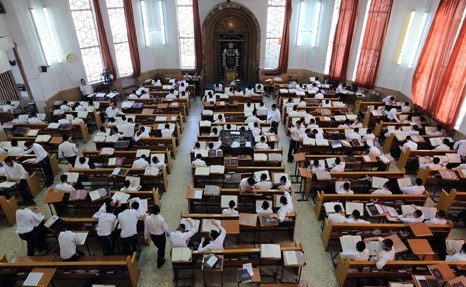
The Ultra-Orthodox Draft: Crossing the Third Rubicon
Written By: Prof. Yedidia Z. Stern, Haim Zicherman
Prof. Yedidia Z. Stern and Attorney Haim Zicherman stress the need to break down barriers that are preventing Haredi service in the army and integration in the labor force, and warn against passing a popular but ill-advised reform.

The Jewish and Democratic State: Zionism is Not Racism
Written By: Dr. Amir Fuchs
In an op-ed in Haaretz, Attorney Amir Fuchs asserts that Israel is both the nation-state of the Jewish people and a democratic state, despite the confused Zionism of Mayor Shimon Gapso of Upper Nazareth.

An Anti-Zionist Law
Written By: Dr. Amir Fuchs
In an op-ed in Haaretz, IDI Researcher Attorney Amir Fuchs warns that the proposed Basic Law: Israel as the Nation State of the Jewish People is not only anti-democratic but also undermines the foundations of Zionism.
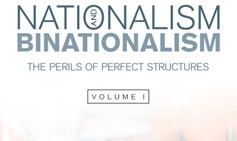
A Zionist State, a Binational State and an In-Between Jewish and Democratic State
Written By: Sammy Smooha
In this article, reprinted from Nationalism and Binationalism: The Perils of Perfect Structures, Prof. Sammy Smooha presents three models of Israel's national character, focusing on Israel's identity as a Jewish and democratic state.
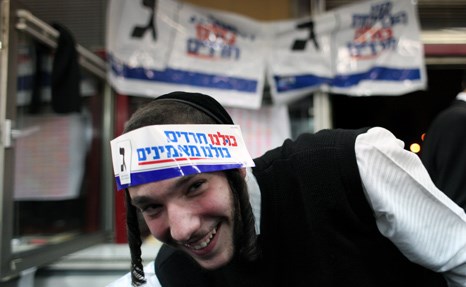
The Comeback of Polarization
Written By: Prof. Benjamin Brown
IDI researcher Dr. Benjamin Brown discusses the sense of attack experienced by the Haredi community in the 2013 election campaign and calls for a process of gradual change in integrating the ultra-Orthodox in the Israeli army and workforce.

The Haredim and the State of Israel
Written By: Prof. Yedidia Z. Stern, Jay Ruderman
In an op-ed in The Jerusalem Post, IDI's Prof. Yedidia Stern, who served on the Plesner Committee for Equality in National Service, and Mr. Jay Ruderman analyze the Haredi community's reluctance to serve in the Israeli army and present an approach that will facilitate Haredi integration into Israel's army and society.

Ultra-Orthodox Conscription: Making It Work
Written By: Momi Dahan
Will the High Court of Justice’s refusal to extend the Tal Law indeed reduce the inequality of burden sharing in Israeli society? IDI Senior Fellow Prof. Momi Dahan does not think so, and argues that ultra-Orthodox Jews in Israel should be exempted from the army and allowed to work, so as to assume their fair share of the tax burden.

Do Not Put an End to Ultra-Orthodox Army Service
Written By: Haim Zicherman
Following the dissolution of the Committee to Advance Equality in Sharing the Burden, committee head MK Yohanan Plesner submitted proposals for alternatives to the Tal Law. In this article, IDI Researcher Attorney Haim Zicherman, who served as the content coordinator of the Plesner Committee, warns that some of those measures were personal recommendations rather than recommendations of the Committee, and may reverse trends of increasing army service by ultra-Orthodox Jews.

The Tal Law: Judicial Responsibility at its Best
Written By: Prof. Mordechai Kremnitzer
Prof. Mordechai Kremnitzer presents a contrasting view to Prof. Yedidia Stern's assertion that the Israeli Supreme Court's ruling on the exemption of ultra-Orthodox men from military service in Israel is "<a href="http://en.idi.org.il/analysis/articles/judicial-activism-at-its-height">Judicial Activism at its Height</a>."

Make the Ultra-Orthodox Serve
Written By: Yair Sheleg
IDI Vice President of Research Prof. Yedidia Stern sets the controversy over mass transportation on Shabbat and holidays in Israel in a broader context, and distinguished between the need for an Israeli-Jewish Shabbat (Sabbath) rather than a religious Shabbat.

Belief in God is Not the Problem in Israel
Written By: Yair Sheleg
Recently, the findings of the third Guttman-AVI CHAI report—A Portrait of Israeli Jews: Beliefs, Observance, and Values of Israeli Jews—were presented to the public. The findings have drawn much media coverage because they revealed that an overwhelming majority of Israeli Jews believe in God. In an op-ed from <em>Haaretz</em>, IDI Senior researcher Yair Sheleg responds to columnists who were alarmed by the findings regarding belief in God, and argues that what is really of concern is the inverse relationship between this belief and belief in democratic values.

Father Judaism and Mother Democracy
Written By: Yair Sheleg
In an op-ed from Haaretz, IDI research fellow Yair Sheleg responds to settler leader Benny Katzover’s positions on the Jewish and democratic nature of the State of Israel, and argues that Israel should not prefer either of these two identities and should view its Jewish and democratic nature as two manifestations of human dignity.

A Jewish and Undemocratic State?
Written By: Prof. Yedidia Z. Stern
The proposed "Basic Law: Israel – The Nation State of the Jewish People" has the support of one third of the members of Knesset. In this op-ed, which was originally published in Hebrew in Yedioth Ahronoth, IDI Vice President of Research Prof. Yedidia Z. Stern, who is deeply committed to the Jewish nature of the State of Israel, warns that the shift from defining Israel as a "Jewish and democratic state" to a "Jewish state with a democratic regime" is not a semantic shift, but a seismic change.

Zionism Must Reject Ultra-Orthodox View on Conversion
Written By: Yair Sheleg
In this op-ed from Haaretz, IDI Research Fellow Yair Sheleg decries the ultra-Orthodox refusal to alter standards for conversion to Judaism in recognition of the fact that for many Israelis, Jewish identity is not only an expression of religious observance but also of identification with Zionism and Jewish culture. He warns that the ultra-Orthodox approach is causing serious injustice to thousands of people who wish to live as Jews and raise Jewish children in Israel.
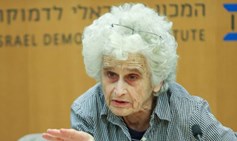
Gavison’s Last Will and Testament
Written By: Prof. Yedidia Z. Stern
“We must find ways to live together, not necessarily to decide in favor of one or another direction.” Prof. Ruth Gavison

“Jewish” Versus “Democratic”
Written By: Yair Sheleg
The cause for the past year's political crisis lie in the ever-widening gap between the two main pillars of the State of Israel’s identity—its “Jewish” and “democratic” components.

Two Jewish Nations and the Abyss Between Them
Written By: Dr. Shuki Friedman
For many American Jews, identification with the State of Israel is a significant component of their Jewish identity.

Religion and State in Israel: Charting a New Course for 5778
Written By: Dr. Shuki Friedman,
Is our country and society doomed to continually follow the same path of repeated crisis, or has the time finally come for us to plot a new course?
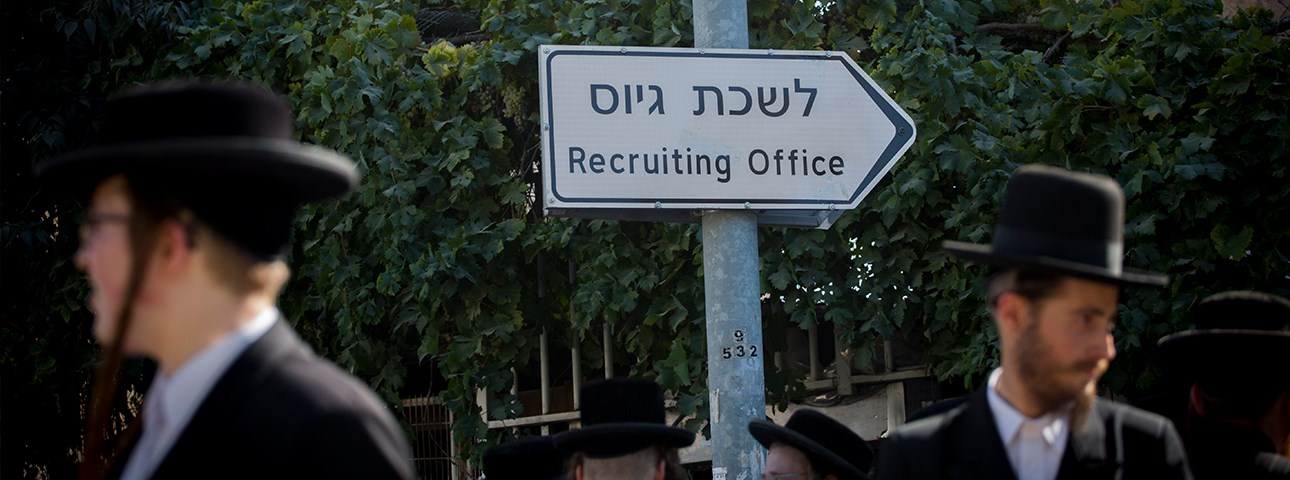
Supreme Court Strikes Down ultra-Orthodox Exemption From Military
Written By: Yohanan Plesner , Dr. Gilad Malach
IDI responds to high court ruling: “The time has come for our politicians to demonstrate leadership and work to enact a more equitable and effective arrangement.”

'Yes' to a Nation-State, 'No' to a Nationalistic State!
Leaders of the Israel Democracy Institute call for alternative proposal that would place nation-state of the Jewish people on equal footing with democratic obligation to equality for all Israeli citizens.
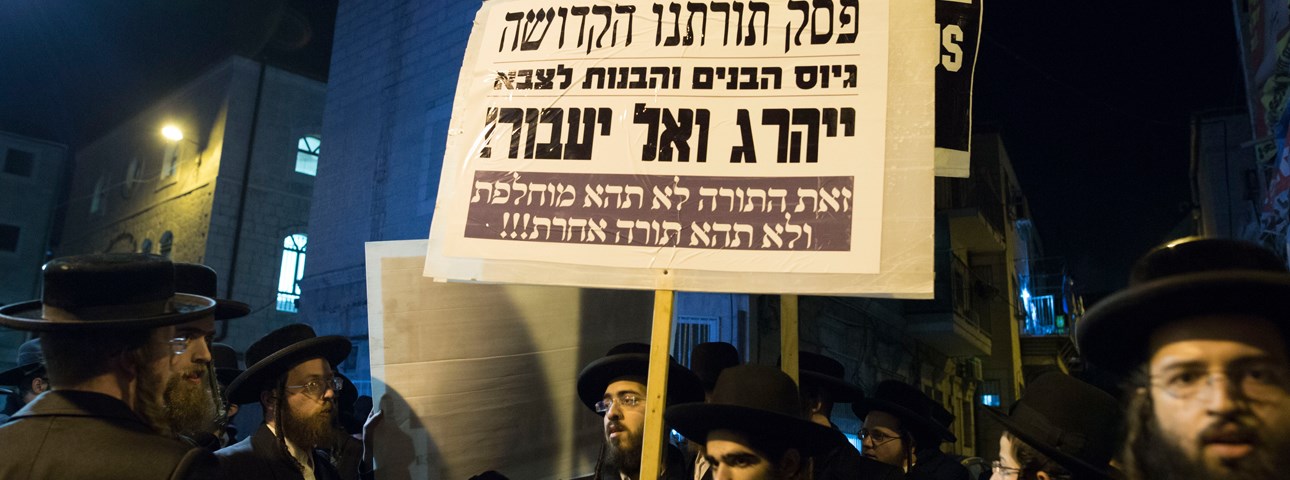
What remains of the religious status quo?
Written By: Dr. Shuki Friedman
Instead of Judaism being what unites Jews in Israel with Jews around the world, our religion has become the main source of conflict.
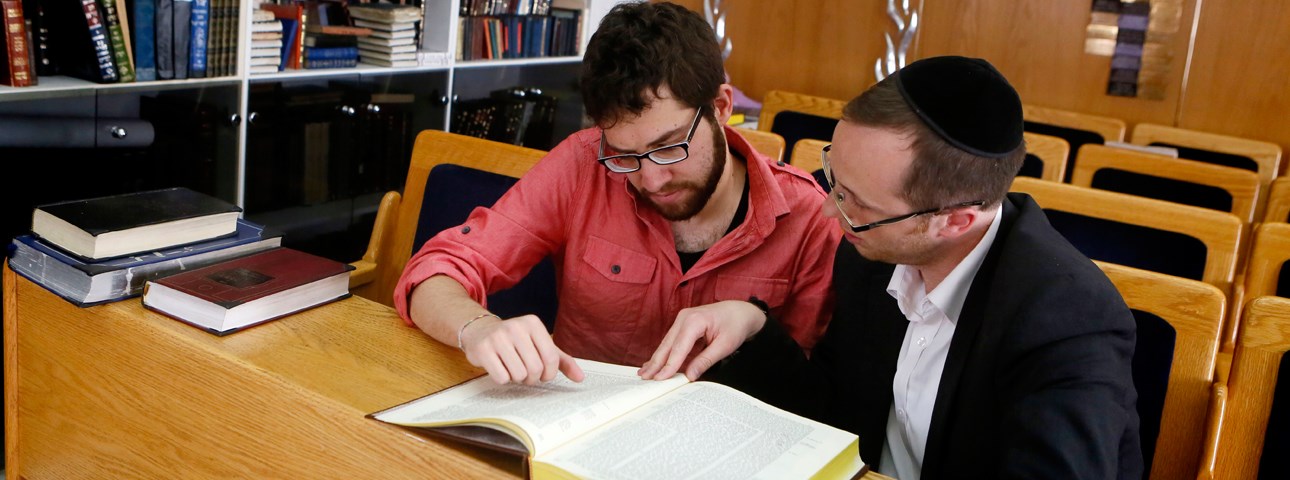
Voyage to Identity
Written By: Prof. Yedidia Z. Stern
Prof. Yedidia Stern argues that our Jewish identity and culture depend on how we understand and internalize the past.

The Shabbat Wars: A Guide for the Perplexed on the 'Status Quo' … and a Possible Solution
Written By: Dr. Shuki Friedman
A summary of the legal situation in Israel regarding Shabbat observance.

Dr. Shuki Friedman: 'New Kashrut Model Must Put an End to Chief Rabbinate's Monopoly'
Dr. Shuki Friedman responds to the Supreme Court discussion Tuesday on the Chief Rabbinate’s monopoly on kosher certification.
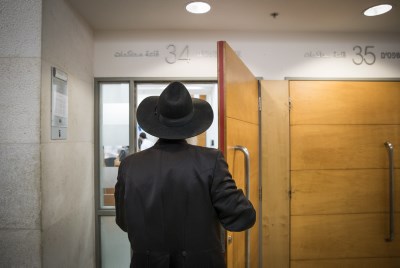
Israel Democracy Institute Scholars on the Proposal to Enable Religious Courts to Arbitrate on Civil Matters: ‘A Good and Balanced Proposal’
Ahead of today’s vote on a bill that would enable religious courts to conduct arbitration with the agreement of both parties, similar to the arbitration that takes place in other frameworks, a policy statement was sent to the Ministerial Committee on Legislation by Israel Democracy Institute’s Dr. Benny Porat.

Dr. Shuki Friedman: Religious Status Quo is Dead
“The time has come to re-raise the issue of the status quo and write new legislation that will be accepted by the majority of Israelis," said Friedman.

